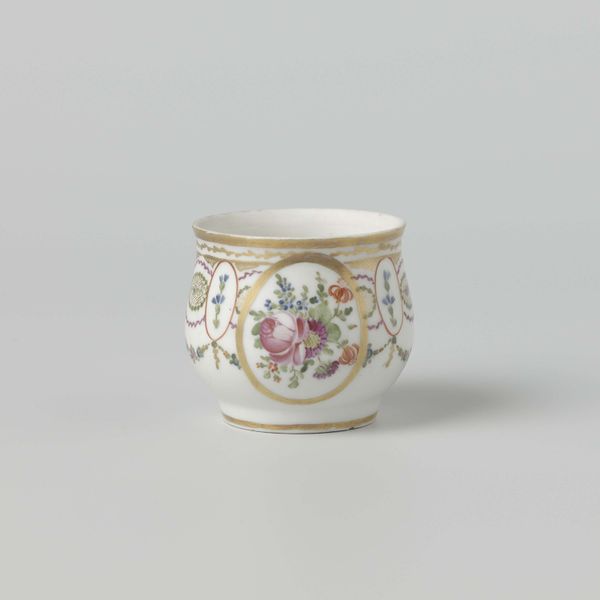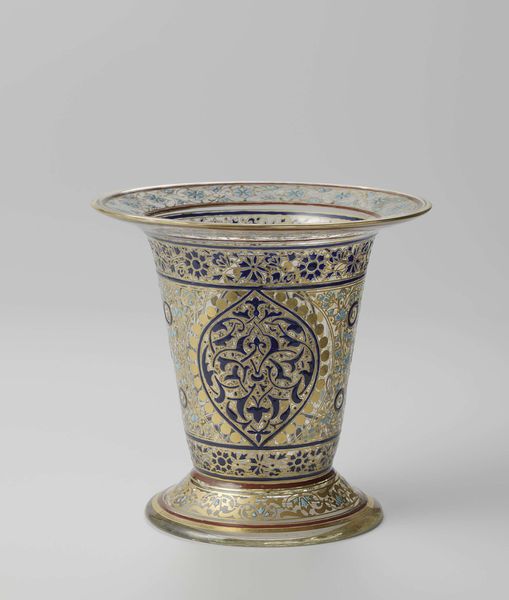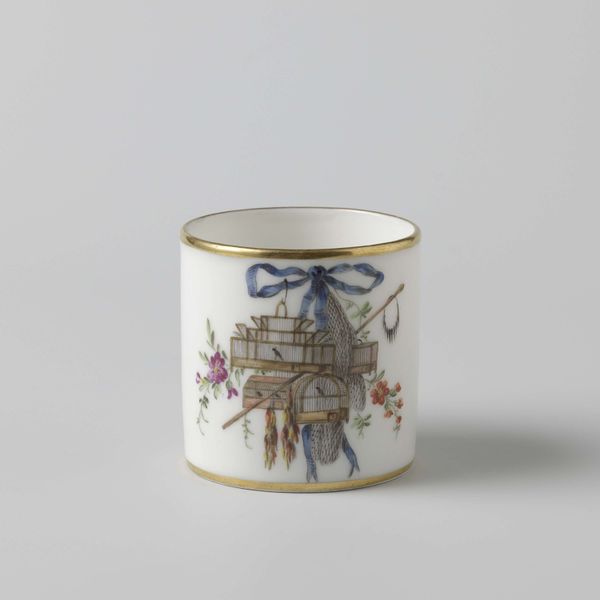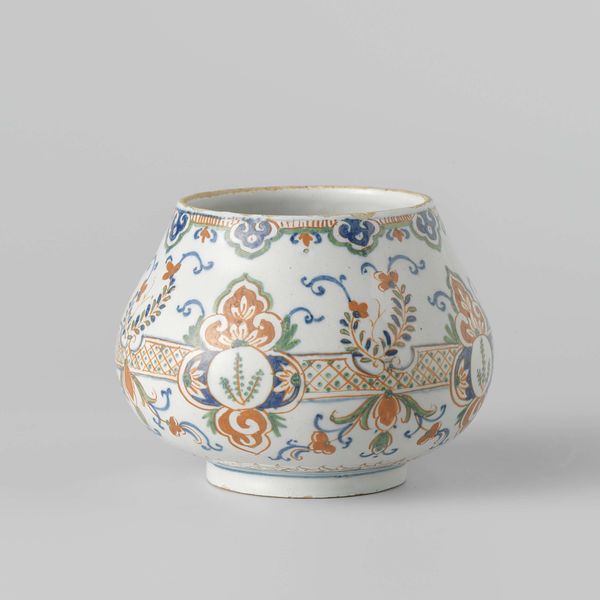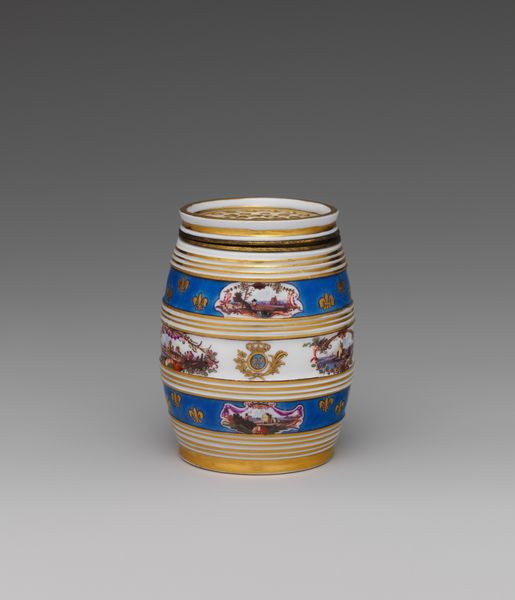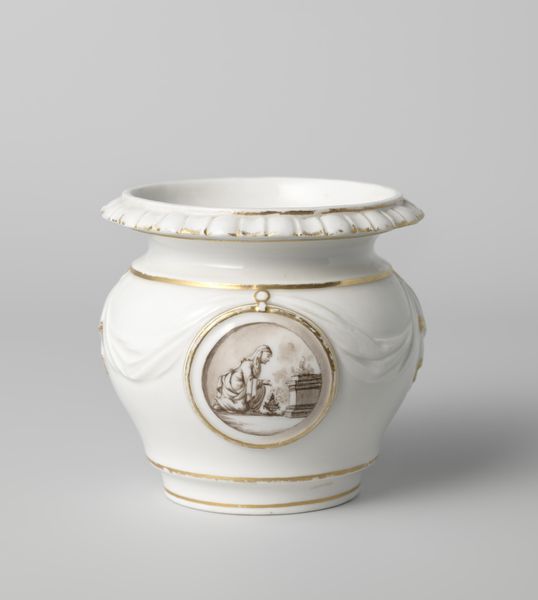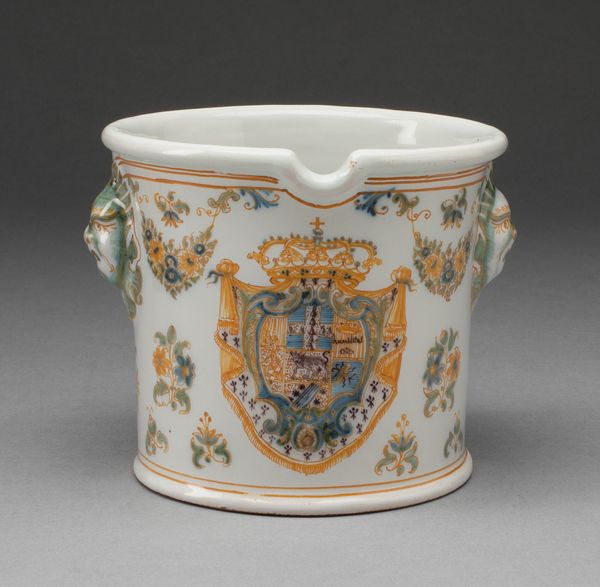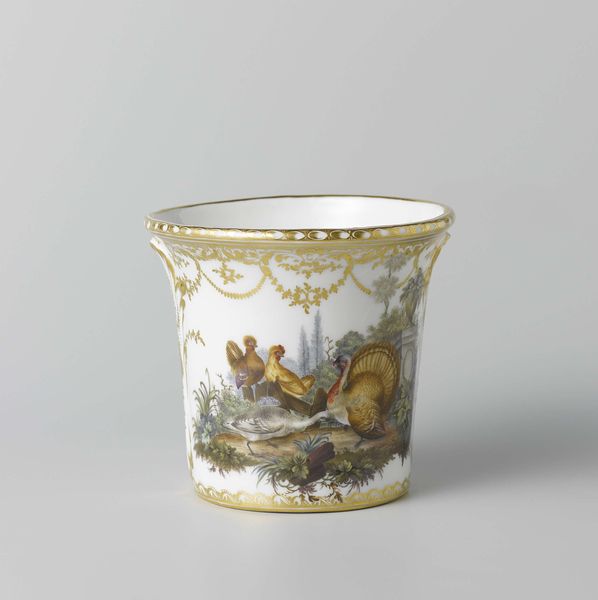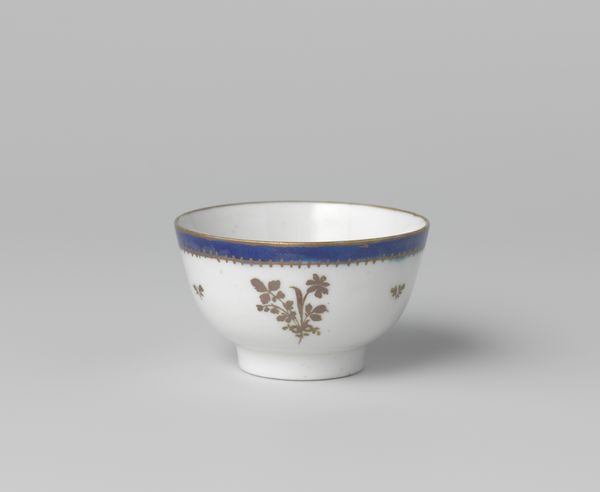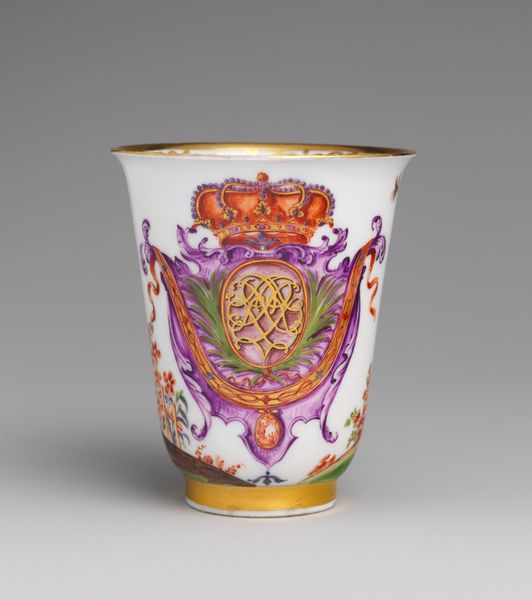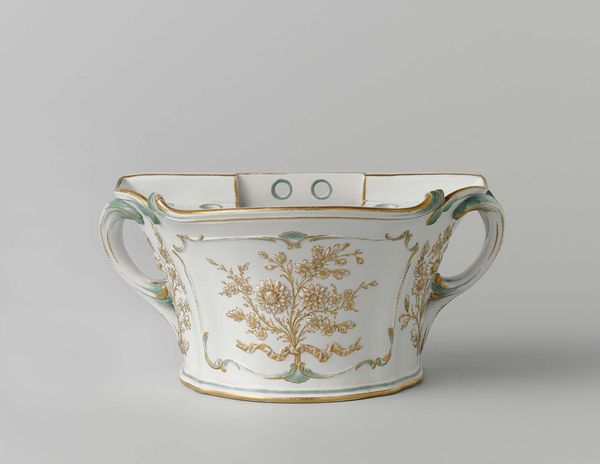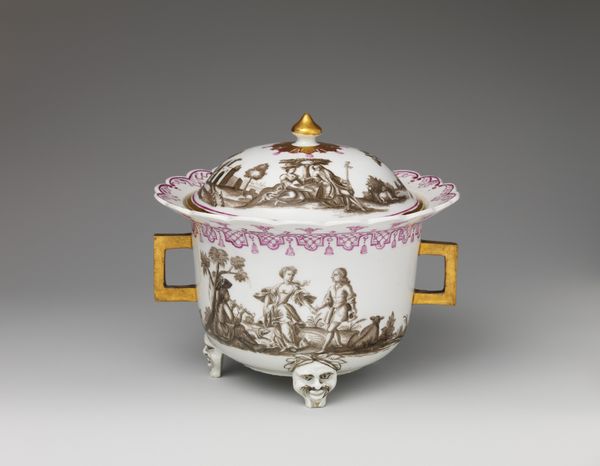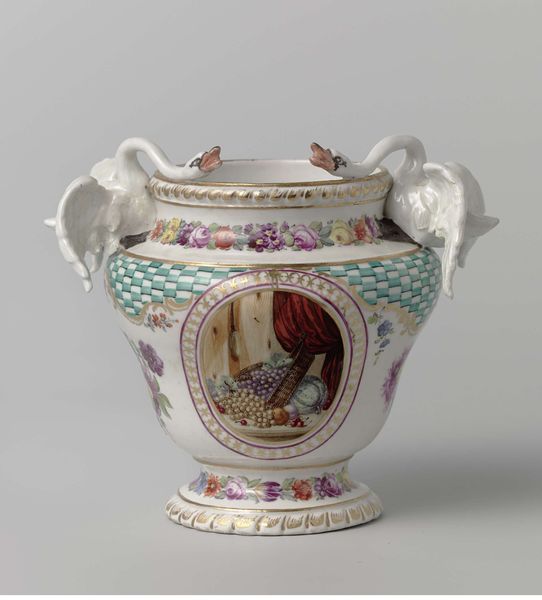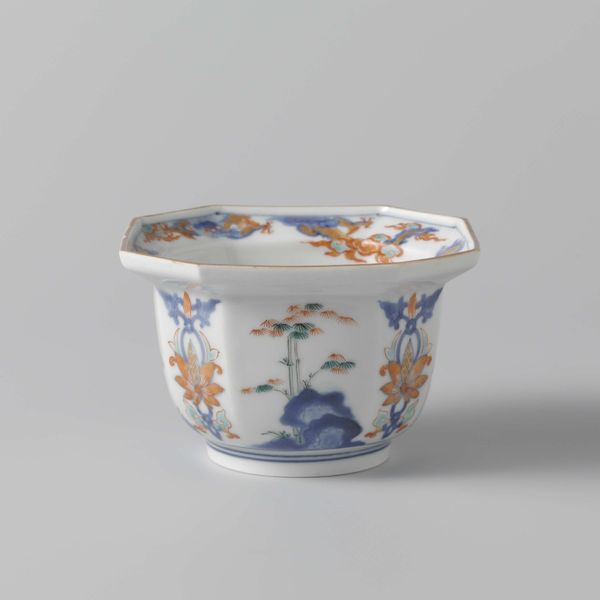
Kop, theekop, deel van een tête-à-tête, beschilderd met lelies 1900
0:00
0:00
ceramic
#
ceramic
#
stoneware
#
ceramic
#
decorative-art
Dimensions: height 5.4 cm, diameter 7.0 cm
Copyright: Rijks Museum: Open Domain
This teacup, part of a tête-à-tête, was painted with lilies by the N.V. Haagsche Plateelfabriek Rozenburg. This piece speaks to the social rituals of tea drinking. The painted lilies and coat of arms are not just decorative; they evoke the social status and refined taste associated with leisurely tea consumption. The Netherlands, with its rich trading history, embraced tea as a luxury item, transforming it into a cultural phenomenon. Institutions such as the Rozenburg factory played a crucial role in shaping the production and distribution of such status symbols, catering to the tastes of the upper classes. Understanding such an object requires delving into archival sources, examining trade records, and studying social etiquette manuals. By doing so, we gain insight into how art reflects and reinforces societal norms and class distinctions. Ultimately, the meaning of this teacup resides not just in its aesthetic qualities, but also in its intricate web of social and institutional connections.
Comments
No comments
Be the first to comment and join the conversation on the ultimate creative platform.
